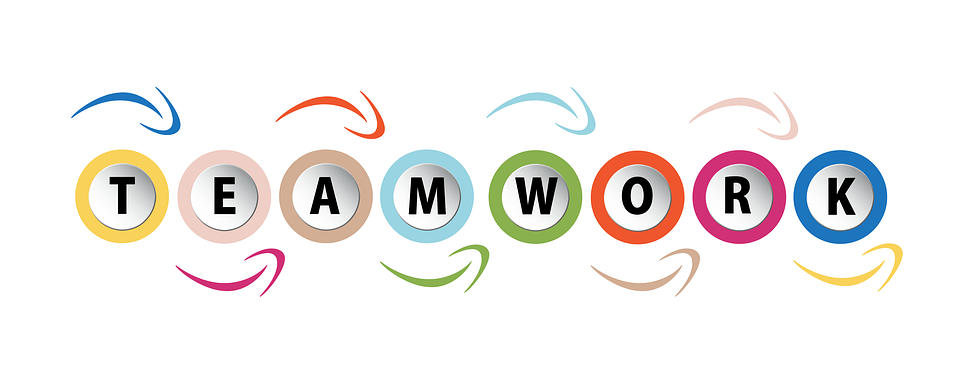|
Startup Commons’ mission is to scale entrepreneurship and innovation by empowering ecosystem development with global knowledge and tools for data-driven development. However, we face an interesting obstacle that stands in the way of our mission.
Startup ecosystems lack ecosystem operators. Sure, policy makers, economic development organizations, core support providers, and key individuals focus some of their efforts on ecosystem development. Some more, some less. Unfortunately, pretty much all ecosystems lack dedicated and sustainable resourced ecosystem operator teams that are solely focused, from a neutral perspective on growing and addressing problems in their regional startup ecosystems in a systematic manner over the long term. And doing so with focus on data and KPI’s and leveraging modern digital technologies. Top down or bottom up? When it comes to creating/developing ecosystems, there seems to be always a question and “two camps” with views of what would work. This is especially true at early maturity stages. The reality is that both are needed, and eventually they need to meet in the middle. To cover both, energy and speed with long-term, sustainability & neutrality. This means connecting the top down “announcement strategy”, policy-making & support funding spending, with bottom up motivated/committed/operative people with digital expertise. It is important to organize into a dedicated and neutral entity (PPP?). Next, you must give a mandate, resources, and clear a big target with milestones & KPI's to match. Once you have put the mandate and resources in place, you must let the selected team do their work with support and governance by ecosystem key actors. How so? When Ramon Lozano came on our podcast, he discussed how he is working to develop the startup ecosystem in Conroe, Texas. Operating as the Entrepreneur In Residence for the Conroe Economic Development Council (CEDC), he describes his primary role as “planting the seeds” for ecosystem growth. Although he works for an economic development organization, he does not think that his organization should govern the ecosystem. Ramon believes that ecosystem governance should be in the hands of the entrepreneurs who make up the startup community. In other words, ecosystems should be governed by the people and for the people. In accordance with his beliefs, Ramon is forming the Conroe Regional Entrepreneurship Guild, a group of entrepreneurs who will oversee ecosystem development. Although the CEDC will “plant the seeds” for growth, their long-term strategy is to hand ecosystem development operations over the the Conroe Regional Entrepreneurship Guild, which will serve as the region’s ecosystem development team. Public-Private Partnerships for Ecosystem Development As the Conroe example illustrates, ecosystem development involves collaboration between the public and private sectors. Policy makers and economic development organizations often need to prioritize startup ecosystem development and lay the foundation for community self-governance. In addition to forming the Conroe Regional Entrepreneurship Guild, the CEDC is conducting surveys, pursuing industry cross-pollination initiatives, and building a research park to “plant the seeds” for startup ecosystem growth. Since the CEDC possesses resources and credibility, it is ideally positioned to perform the early-stage tasks that are essential to ecosystem development. Eventually, the CEDC hopes to pass its data and learnings to the Conroe Regional Entrepreneurship Guild so that the regional startup community can begin to govern itself. However, the transition does not mean that the public and private sectors can stop collaborating. As the ecosystem development team continues collecting data and identifying barriers to ecosystem growth, they will most-likely need to make policy recommendations, mobilize resources, and collaborate on projects with the public sector. Ecosystem development is undeniably a public-private undertaking. And to really master the digital side of ecosystem connectivity, to make all relevant data flow in real time for all ecosystem development and actors needs in various levels. - Finally, the digital silos in various ecosystem applications need to be smartly connected as well. This ain't no small task that can simply be solved with bottom up approach or left to solve on it’s own. But it is doable. As long as there are proper entity in place to take on the challenge, proper financial and skills resources in place with a mandate to operate from all ecosystem key actors. What can you do to form ecosystem operator teams?
|
Supporting startup ecosystem development, from entrepreneurship education, to consulting to digital infrastructure for connecting, measuring and international benchmarking.
Subscribe for updates
Startup ecosystem development updates with news, tips and case studies from cities around the world. Join Us?Are you interested to join our global venture to help develop startup ecosystems around the world?
Learn more... Archives
December 2023
Categories
All
|
- Startup Commons
- Business Creators
-
Support Providers
- About Support Providers
- Learn About Startup Ecosystem
- Startup Development Phases
- Providing Support Functions
- Innovation Entrepreneurship Education
- Innovation Entrepreneurship Curriculum
- Growth Academy eLearning Platform
- Certified Trainers
- Become Growth Academy Provider In Your Ecosystem
- Growth Academy Training On-Site By Startup Commons
-
Ecosystem Development
- About Ecosystem Developers
- What Is Startup Ecosystem
- Ecosystem Development
- Ecosystem Development Academy eLearning Platform
- Subscribe to Support Membership
- Ecosystem Operators
- Development Funding
- For Development Financiers
- Startup Ecosystem Maturity
- Case Studies
- Submit Marketplace App Challenge
- Become Ecosystem Operator
- Digital Transformation
- Contact Us
- Startup Commons
- Business Creators
-
Support Providers
- About Support Providers
- Learn About Startup Ecosystem
- Startup Development Phases
- Providing Support Functions
- Innovation Entrepreneurship Education
- Innovation Entrepreneurship Curriculum
- Growth Academy eLearning Platform
- Certified Trainers
- Become Growth Academy Provider In Your Ecosystem
- Growth Academy Training On-Site By Startup Commons
-
Ecosystem Development
- About Ecosystem Developers
- What Is Startup Ecosystem
- Ecosystem Development
- Ecosystem Development Academy eLearning Platform
- Subscribe to Support Membership
- Ecosystem Operators
- Development Funding
- For Development Financiers
- Startup Ecosystem Maturity
- Case Studies
- Submit Marketplace App Challenge
- Become Ecosystem Operator
- Digital Transformation
- Contact Us



 RSS Feed
RSS Feed

